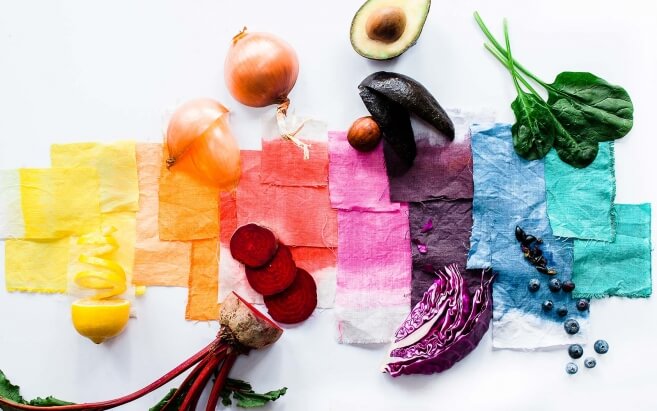Please be sure to check the event organizer’s website for any last-minute changes or cancellations prior to attending.
Have an event that will fit well on our calendar?

- This event has passed.
Natural Dyes Co-Op Info Session

All Together Now PA’s Clothing&Textile Coalition/ PA Fibershed has teamed up with Keystone Development Center and Goddess Rising Intimates to establish a natural dye co-op utilizing food and floral waste and want you to be a part of it! Join us for a virtual informational session on Thursday, August 17, 2023, from 11:00 am to 12:15 pm.
This session is open to businesses in and around the Philadelphia region who produce food and floral waste including (but not limited to): produce and floral farmers, food distributors, restaurants, food and floral markets, floral designers, event planners, event venues, fashion & textile designers and dyers.
Together, we can make a positive impact on the environment and create a sustainable and vibrant future for the textile industry. Let’s work hand in hand to turn waste into beautiful, natural dyes! Don’t miss this chance to be a part of the change. Join us at the virtual session to learn more about how you can get involved!
RSVP to receive a link to access the session.
If you are unable to join us on August 17th but are interested in learning more, please fill out the RSVP and we will send a recording of the meeting.
Why natural dyes?
Our primary objective at Pennsylvania Fibershed is to establish a circular fashion supply chain, promoting the use of natural materials and the reuse and sustainable disposal of clothing and textile materials at the end of their lifecycle. Our vision is to ensure that when these materials reach the landfill, they do not contribute to soil pollution or produce toxic run-off which occurs when using chemical dyes and synthetic materials. Embracing a circular approach allows us to create a closed-loop system, where materials are continually repurposed, remanufactured, or recycled, minimizing waste and reducing the environmental impact of the fashion industry.
Natural dyes offer many advantages over chemical dyes for textiles including :
- They are environmentally friendly, being derived from biodegradable sources, reducing water pollution and soil contamination.
- They are non-toxic, lacking harmful chemicals present in synthetic dyes, making them safer for consumers and workers.
- Their production is sustainable, relying on renewable resources and supporting sustainable agricultural practices.
- Natural-dyed textiles are gentle on the skin, causing fewer irritations or allergies.
- Natural dyes produce unique and earthy colors, preserving cultural and artistic value.
- The natural dying process is less energy-intensive than chemical dying, resulting in a smaller carbon footprint.
Why food and floral waste?
As you may know, food and floral waste is detrimental to the environment. It produces methane gas, which is significantly more effective at trapping heat in the atmosphere compared to carbon dioxide, contributing to global warming and climate change. Additionally, food waste takes up valuable space in landfills and as they reach capacity, more land must be allocated for waste disposal, leading to further habitat destruction and loss of green spaces. By diverting food and floral waste from the landfills to use for natural dyes, we are collectively reducing greenhouse gas emissions and helping to preserve the land.
Questions? Email Leslie@alltogethernowpa.org.
Details
- Date: August 17, 2023
-
Time:
11:00 am - 12:15 pm
- Cost: Free
- Website: https://alltogethernowpa.org/event/natural-dyes-co-op-info-session/
Venue
Organizer
- All Together Now PA
- Email hello@alltogethernowpa.org
- View Organizer Website

